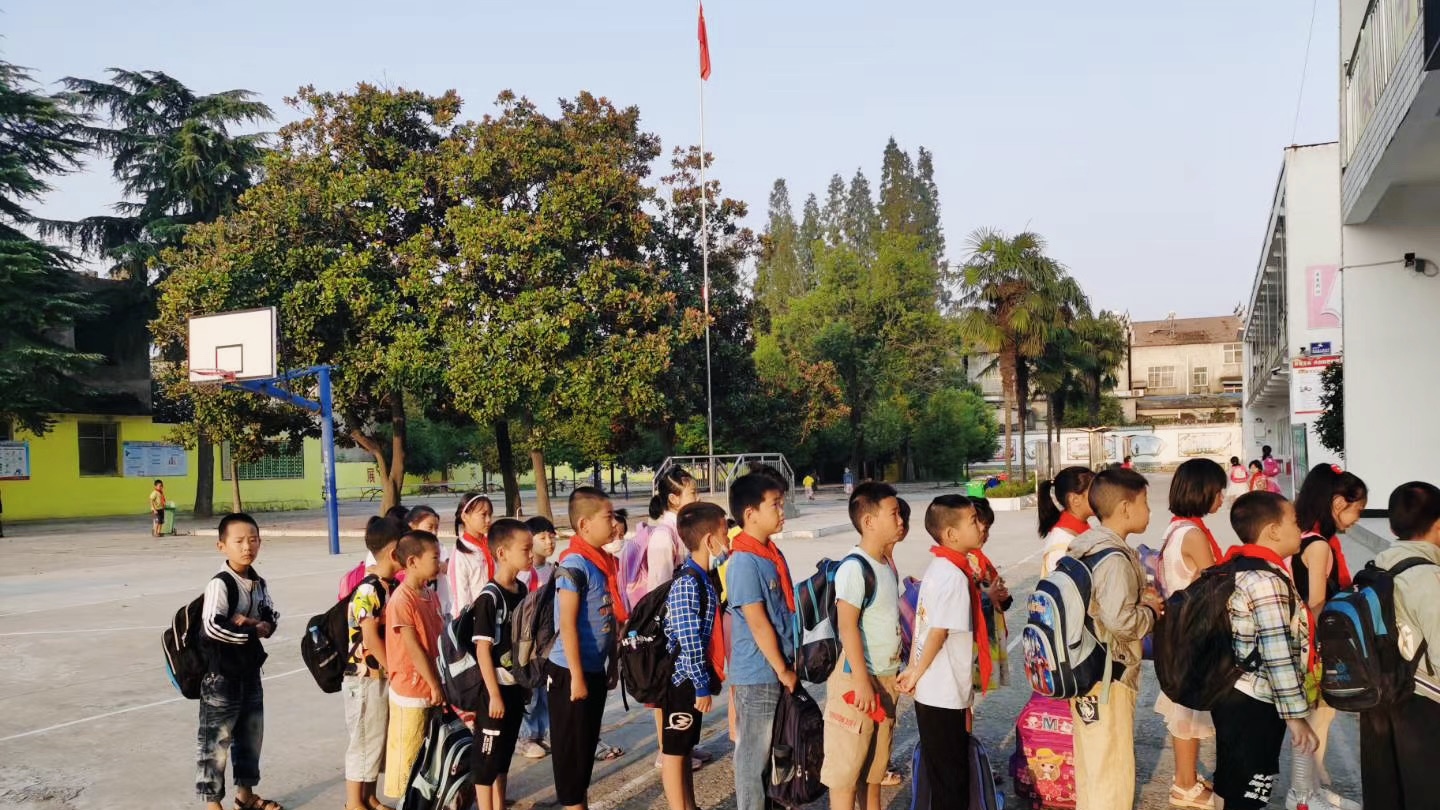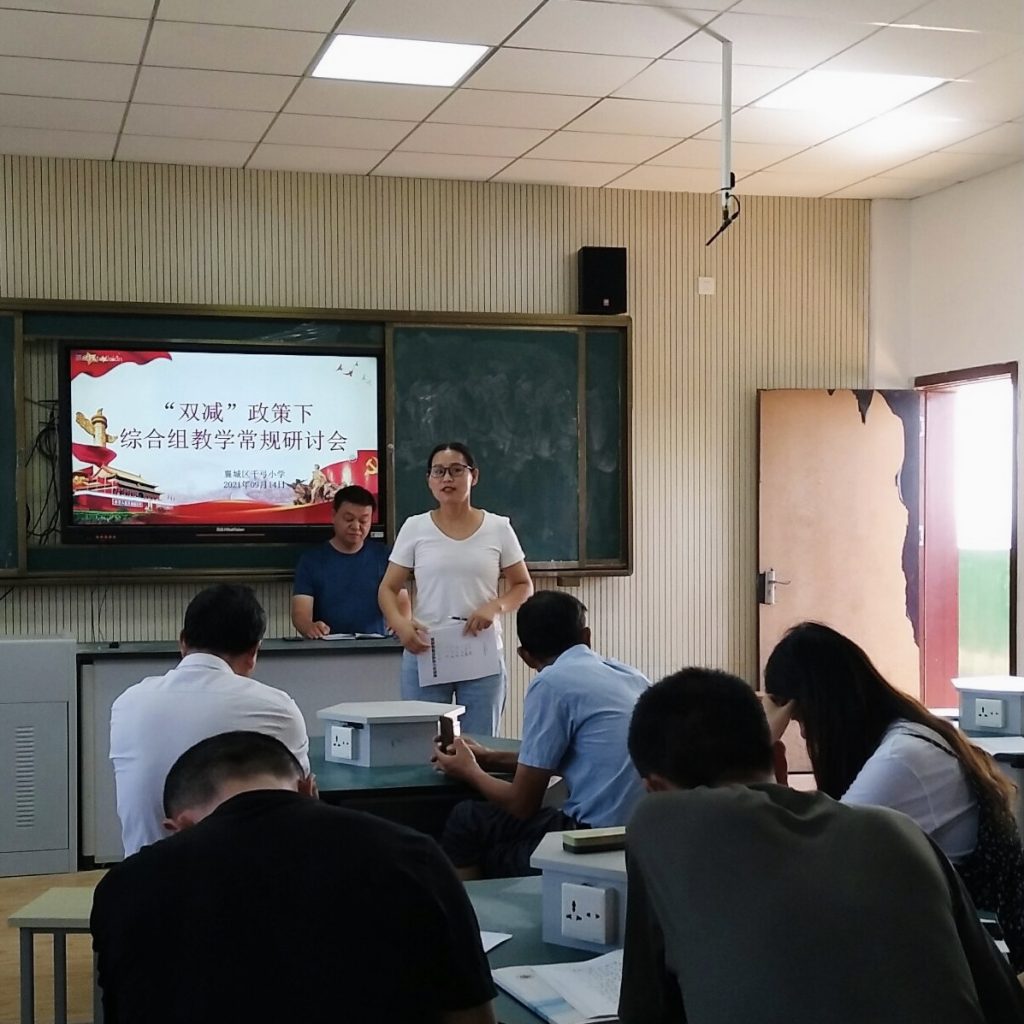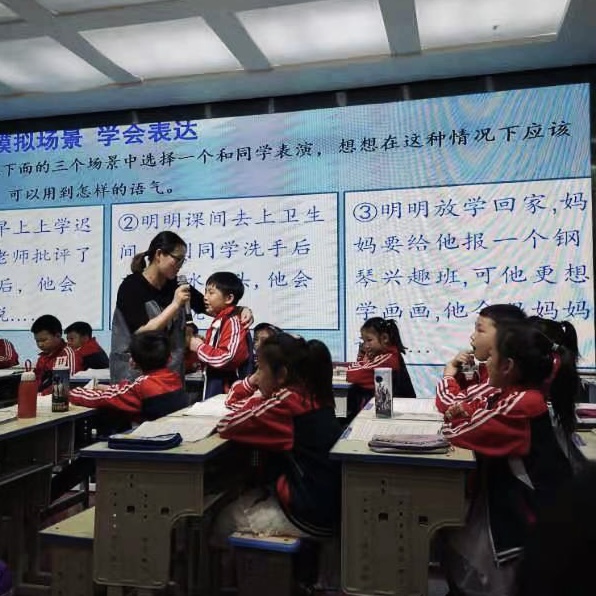Young excellent teachers left due to the title assessment. They don’t understand: why are the achievements and awards not worth 20 years of muddled teaching?
Deep into the night, insects and frogs are chirping outside the window. Qiao Shu sits in front of the computer and writes her first resignation letter since she has been working for eight years.
A decision to quit
Qiao Shu was a teacher in the primary section of Yangwei Secondary School in Oumiao Town, a state-owned school in the suburb of Xiangyang City. She holds a bachelor’s degree in Biology from a first-class university in China but did not hesitate to become a language teacher after graduation.
“I love literature, and I love teaching,” she says, “it’s all about sharing. I learn and share all my knowledge with the lovely children, which fulfills me.
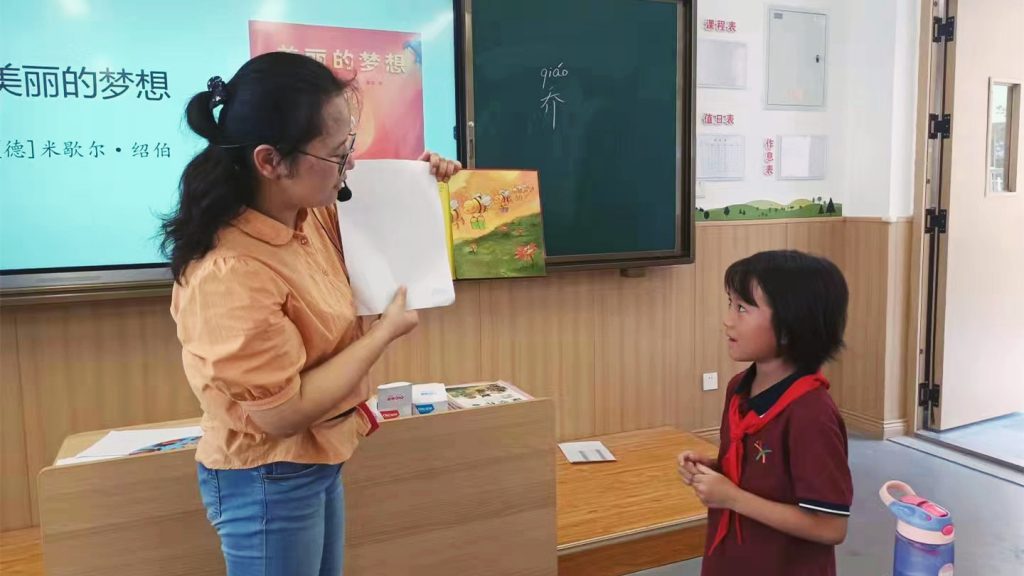
“Leaving Yangwei School is not a whim. I am grateful that last year’s title assessment really made me realize what it means to be hopeless and at the same time strengthened my determination to leave.”
The notification about intermediate and senior professional title evaluation was released last September. Yangwei School got an intermediate place. It was a chance for teachers like her who have just a junior title.
“No, it’s not a chance,” Qiao said, “it’s a blow.
“One place and thirty candidates, with over twenty teachers have been teaching for decades. A young teacher like me is not eligible to pass the first round of reviews.”
The criteria for assessing intermediate teachers at Yang Wei Secondary School are consistent with other schools in Xiangyang. Primary school teachers with a bachelor’s degree usually hold the title of a junior teacher from the beginning of their work. They can participate in the intermediate title assessment after teaching as a junior teacher for more than four years.
But being qualified does not mean being hopeful.
Qiao Shu
She has compiled all the supporting documents, including the most basic teaching qualifications and the Teacher Proficiency Test certificate. She also inventories the various awards and honours she has received in the last five years.
The day before she was due to submit her application, she heard that a young teacher who had just submitted his application was sifted out from the preliminary selection. The reason for his elimination was that he had a short teaching history. That teacher had taught one more year than she had.
“My heart sank then. The panel members don’t care how hard you’ve worked or how well you’ve done. In front of teachers with 20 or 30 years of teaching experience, you can’t make it to the selection threshold. So, I didn’t even submit my application,” she said.
“Teaching experience carries huge implications. That is a big problem with the current title system,” Qiao Shu echoed, “Many elderly teachers no longer learn and do not keep up with the times. They enjoy the benefits of the professional title simply because they are older. Young teachers, however, are not recognized in this area no matter how hard they are and what they achieved.
“Moreover, when older teachers become a senior, they don’t go and lead the way and teach the younger ones and help us grow as the position requires, no. The senior is their ceiling as a teacher, and the next step is to relax instead of fulfilling their due responsibilities as a senior teacher.”
The years of teaching
Qiao Shu is not the only young teacher who has been discouraged by the title review. Wang Chunju, a language teacher at Qiangong Primary School in Yinji Village, also chose to submit materials when she faced a chance.
“It’s all about age,” sighs Wang Chunju.
Wang Chunju and Qiao Shu met at a teaching programme. They both worked in rural primary schools, both had a great passion for teaching languages, and both were willing to try every opportunity to improve their professional skills. The difference is that Qiao worked as a teacher in a state school right after graduation. In contrast, Wang worked in a commercial school for eight years before joining the state school through a unified recruitment examination. As a result, at the age of 35, she has only six years of teaching experience in state schools.
Last autumn semester, there was also a vacancy for an Intermediate Teacher title at Qiangong Primary School. Wang Chunju had already met the criteria to apply, having taught for more than the five years required by the policy. She had even tripled the number of academic achievements and award certificates of many teachers.
She found there were a lot of teachers who had applied that were teaching for twenty or thirty years. She says: “I knew that although I met the requirements, the first round of selection was just based on teaching experience, so I wasn’t competitive.
But you don’t participate in doesn’t mean you’re not affected.
Wang Chunju
A month before the official notification, teachers started discussing the matter. There was only one place available but too many people who met the requirements. Those who had a chance tried to get themselves extra marks, while those who had no chance at all either didn’t care or gave ideas to the teachers who had a chance.
Wang Chunju is one of those teachers who seem to have a chance but have no success. She can only choose not to get involved, but she cannot avoid her colleagues talking about it.
“I feel like a deflated ball whenever it comes to the professional title review. My enthusiasm for work instantly reduced by half, and I felt unmotivated to work. Other experienced teachers may talk about how long to wait and how hard it is to get an intermediate title. Thirty years they say, which makes me feel that I haven’t even started on the long road to my professional title career. Yes, I have won the Quality Lessons, and I have made my class top grades. So what? I am still waiting for years.
“It’s not just that. Time and time again, I will feel as if this whole title thing has nothing to do with me. But in practice, I don’t have any less work than others, or even more. I’m very driven, so I spend a lot of the time on these kinds of things to get them right.
“It just feels like my workload and my expectations for the title are just greatly inversely correlated. This mood definitely affects my work status, my mental state and my productivity,” says Wang Chunju.
Qiao Shu had the same state of mind: “It must have been a downer when the notice or document for that title evaluation was released. You don’t even have a chance to put one foot. I’ve observed other teachers in the same situation. Imagine that after 20 years of work, you’re still at the lowest level, and you feel that it’s a long way off. Everyone gets very affected and either keep complaining or tries to get votes for themselves.”
A landmark of recognition
For young teachers like Qiao Shu and Wang Chunju, the title’s most critical meaning is recognition of their teaching abilities and achievements.
“For me, competence is more important than this title,” Qiao Shu says, “Whether it’s an honour or a title, it’s like a road stone on the teaching journey. I can’t stop at that road stone. I must move on. But when I have reached a certain point, it is a kind of affirmation to have a road stone to mark my journey so that I know my efforts over time have not been in vain. Not being graded doesn’t affect my enthusiasm for teaching because I enjoy the process more.
In Wang Chunju’s view, the title does affect her income, but it is more of a reflection of her work capacity.
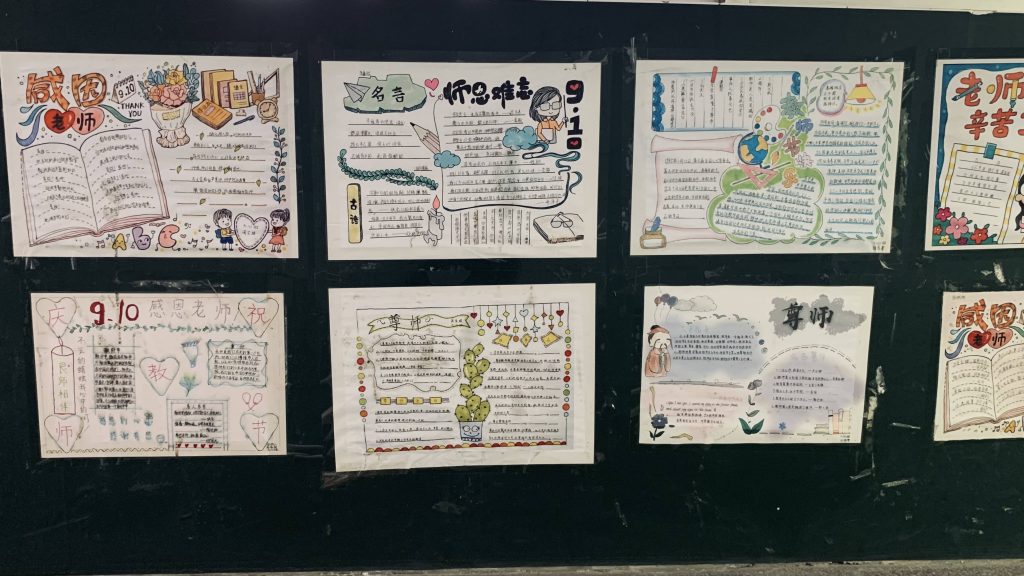
She says: “I don’t want to kill time and muddle through. I want to be a good teacher and take responsibility for both my students and me. But I also hoped to prove myself through the recognized title. It is, after all, a somewhat comprehensive reflection of a teacher’s ability.
“The old teachers like to discuss their titles in the office, and those who passed the review are always full of superiority. But I am not convinced. I don’t think some of them are good at teaching. Some teachers have been teaching the same content repeatedly for decades, and you cannot tell if they like this job or not. Thay are just doing the teaching like puppets. Then they are given a higher title mostly because they have 30 years of teaching experience. I would ask myself, ‘Where do I fall short?’ I admit that I lack experience, but I can’t help feeling that it is unfair.”
“As for my income,” says Wang, “I am relatively fortunate that my husband works in the transport system, and his salary is much higher than mine. I’m not saying I can’t maintain basic living well.
But once my daughter told me that she wanted to learn piano, I realized that my monthly salary was not enough to pay for a few piano lessons, let alone a piano, which usually costs ten thousand yuan.”
When her daughter said, “Mum, being a teacher is so low paid and so hard. I don’t want to be a teacher when I grow up”, she was not surprised but just a little bitter.
Wang Chunju knows the feeling of getting paid for what she puts in, thanks to her experience in the private school. So, when her family persuaded her to work for state schools because it was more stable, she considered the price of more stability. But she didn’t expect seniority, which is age, to be so important here.
“We have two types of older teachers in our school, those who have reached the highest intermediate or senior level, and those who have not been awarded but are getting older. Many of them have family commitments and no longer want to spend energy on their work. It is usually the younger front-line teachers like us who have the biggest workload. Because we still need to work to prove ourselves,” says Wang Chunju.
Many veteran teachers at Qiangong Primary School with the expected title find it pointless to be a class adviser. So, they teach more accessible subjects like Moral and Art, of which the sessions are concise. From most teachers’ point of view, being a class adviser takes more time to look after the students, and certainly something that gives them extra marks in the title review. In this case, young teachers will take the initiative to be class advisers, teach their main subjects simultaneously, and actively participate in various traineeships and competitions. Every time she prepares a Quality Lesson, Wang Chunju has at least two months where she can’t rest, not to mention other activities.
A month ago, the school needed to have all the documents on the “Civilised City” campaign in place before the new term starts for inspection (Xiangyang is applying to become a national “Civilised City”, a social honour that will bring more investment and trade to the city. It requires every unit and citizen to participate in activities like learning the history of party construction and beautifying the city). She and the other two young teachers were assigned to organise the documents. They spent their days collating information, writing materials, and assembling them into books, and their nights doing teaching tasks such as correcting students’ assignments and recording students’ performance, without any rest at all. In addition, most young teachers must spend their weekends as volunteers to stand at the traffic lights on the streets and assist the traffic police in keeping the roads in order.
We do all the things that the older teachers do not want to do.
Wang Chunju
Wang Chunju has a colleague, Xu Yun, who is more than ten years older than her, but holds the same professional title. “He is recognised as a model worker for us, very active in his work and gentle with his students. But failing time and again at the title review has sapped his enthusiasm,” Wang Chunju said Xu’s mantra now is, “Give me a class, and I’ll go and teach a lesson for you every day. That’s all.”
A new beginning with visible hope
Qiao Shu went to a newly established independent school after layers of selection, OCT (Overseas Chinese Town Holdings Company) Primary School.
She used to drive 45 minutes to work when she lived in the city and the school was in town. Now it’s only 20-minute commuting to school, and she can spend more time with my family, especially her son. He is about to start primary school.
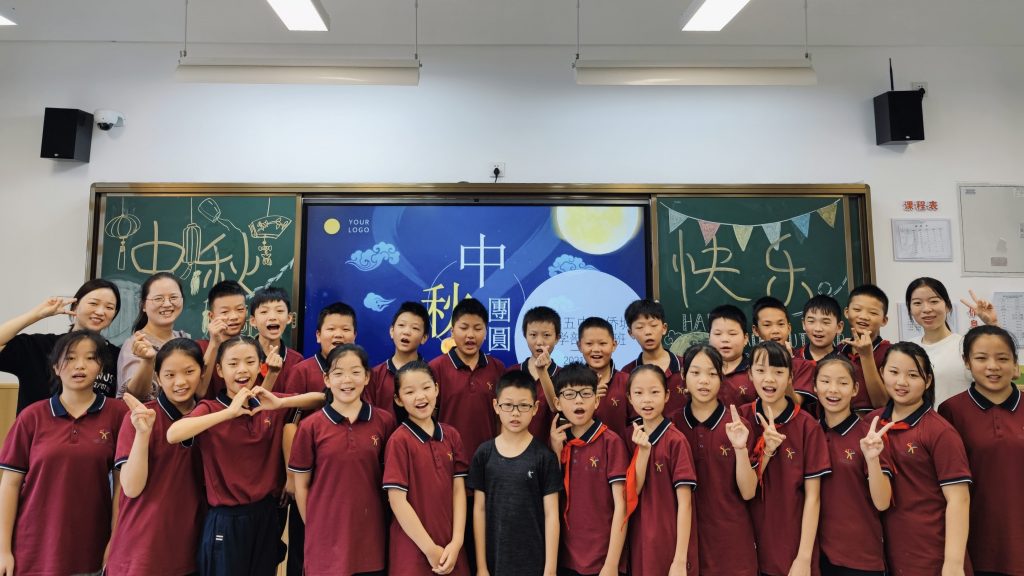
“More importantly, OCT Primary School brings together a lot of talented young teachers. Some of them have left state schools to come here, just like me. We want to get the recognition and pay equitably. Others are recent graduates who do not want to be trapped in the state public teaching system and want to show their ambition here. We are all at the same starting point and have the same opportunities now.
“And even teachers in some commercial schools can participate in the title review. I think I still can make up for what I didn’t accomplish in state schools. If I’m lucky, I hope to achieve a promotion within a year,” says Qiao Shu, with shining light on her face.
Qiao Shu left the state teaching service, while Wang Chunju grew to understand the life of a teacher in a rural primary school.
“Rural primary schools have taught me more about the most spartan side of life than urban primary schools. My daughter pities my salary, but she doesn’t know that many teachers born and raised in the fields teach every weekday and go home to do farm work on weekends. For me, the tremendous significance of a title is recognition. For them, a title is 500 Yuan a month and 6,000 Yuan a year. 6,000 Yuan, in good weather, is half a year’s harvest of cabbage or corn grown on ten acres of land.
“I have seen two veteran teachers in the village spreading rumours behind each other’s backs and even arguing in front of each other over a vacancy in an intermediate title. They want to be more dignified and care more about their income than teachers who live in the city. They are usually good and simple people. It’s just that their lives are less easy than mine. That’s when I feel that teaching with a conscience and not caring about other gains and losses is what makes me happy in life,” Wang Chunju says.
Wang Chunju’s daughter still hasn’t started piano lessons but has already learnt many Tang poems under her guidance, which gives her a great sense of achievement.
Qiao Shu has been busy all summer with the recruitment for her new employer. She has just finished writing a picture book recommendation on her personal social media platform, a weekly task she gives herself to work on her writing. But she still found time to go downstairs with her son to observe the animals and keep records each day.
The title evaluation, which once made them feel helpless when they thought about it, is finally a hurdle they can cross.
